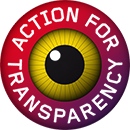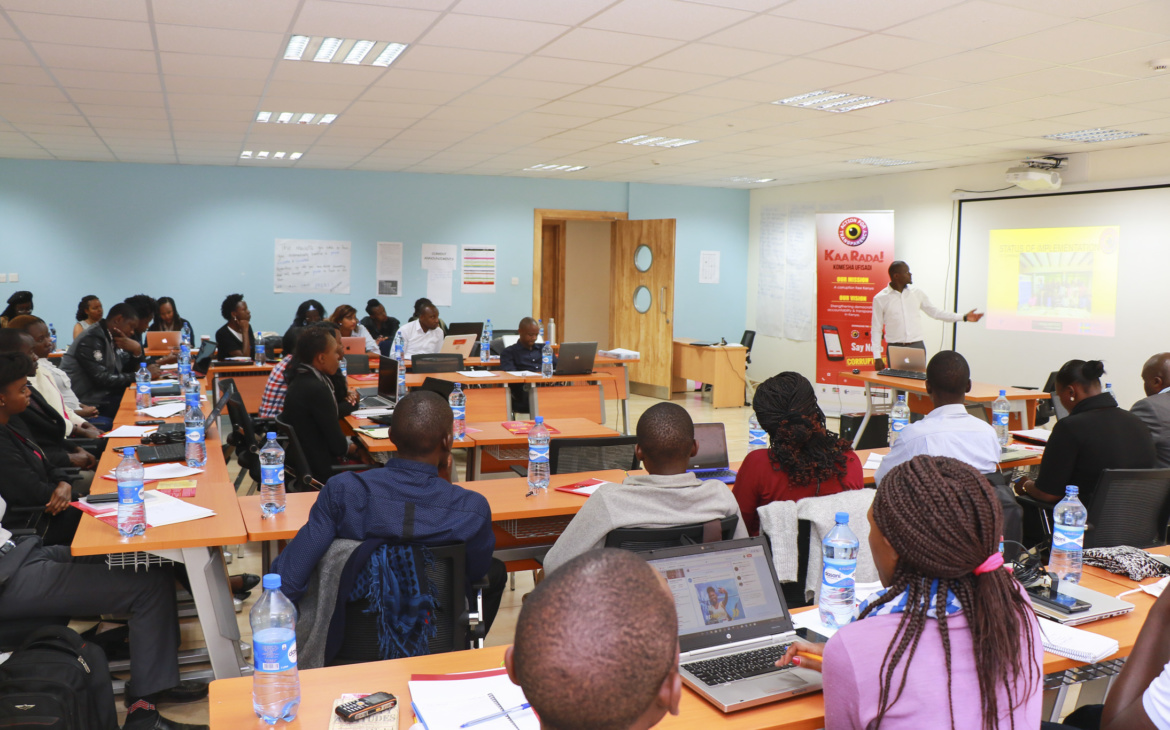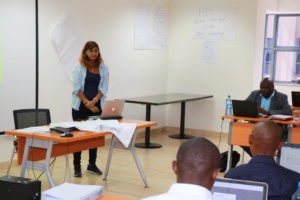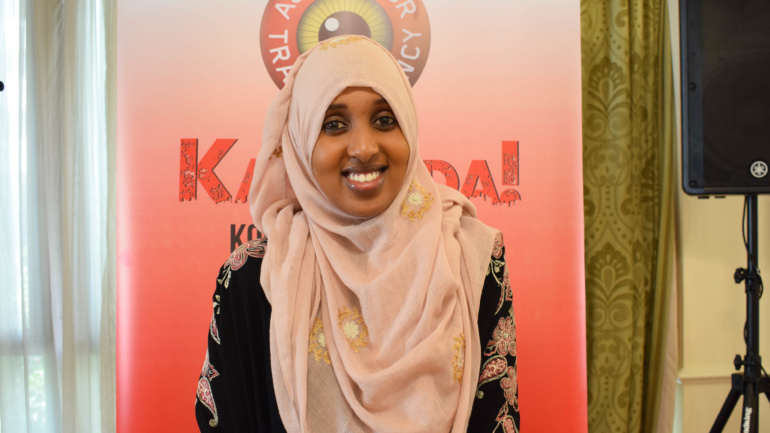On the 29th of November 2017 to the 1st of December 2017, the Action for Transparency project team organised an Investigative and Data Journalism training in partnership with United States International University-Africa (USIU) and Code for Africa in Nairobi.
The training was aimed at empowering 45 journalists with skills to investigate cases of suspected corruption or mismanagement of public funds and analyse financial/budgetary information to reveal gaps affecting the health and education sectors.
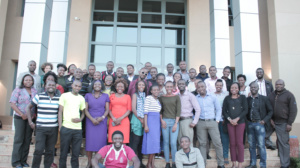
As a specialised area, it was necessary to bring together a host of experienced trainers to facilitate the 3-day training. Some of the topics covered and facilitators included;
-
- Tricia Govindasam: An introduction to Data Journalism. A research assistant and data fellow at Code for Africa’s Pan-African Data Journalism team, StoryLab. From South Africa and works with environmental data, creating visualisations and mapping in GIS.
- Chris Orwa: Data Analysis and Visualisation. A data scientist with 7 years experience working in various organisations. Currently works at Brave Venture Labs as Head of Data Science where he leads a team applying machine learning to HR problems. Previously held the position of Lead, Data Science at iHub.
- Kirsten Milhahn: Pitching Stories. A documentary journalist and foreign correspondent. Her primary focus areas covers African issues. Themes covered include politics, social and cultural aspects, environmental topics, health and medicine.
- Pamela Sittoni: Pitching Stories. An Editor, International Desk for the Nation Media Group and Managing Editor, The East African.
- John Allan Namu: Investigative journalism. A Special Projects Editor and an investigative journalist, heading a team of the country’s best television investigative journalists, Africa Uncensored. His area of focus is largely in long-form investigative and in-depth reporting on current affair topics. He have been involved in various investigations with topics ranging from extrajudicial executions and other human rights abuses in Kenya’s current war on terrorism to the mechanics around which Kenya’s last general election result did not reflect the actual vote. He has done this for the past 10 years, before which he did general news features and Business reporting.
- John Kinuthia: Budget research and resources distributions. John Kinuthia joined the International Budget Partnership in October 2013 and is based in Nairobi, Kenya. He is involved in IBP Kenya’s technical assistance to state and non-state actors.
- Tabua Francis Butagira: Managing Editor, Content, at Monitor Publications Ltd, publisher of Daily Monitor (monitor.co.ug), Mr Tabu Butagira has 16 years’ experience in journalism, most of it as a field Reporter. His main beats are politics, diplomacy, security and investigations.
- Catherine Gicheru: Data journalism. She is a veteran Kenyan editor who is working with the Code for Kenya open-data initiative to promote data journalism and civic innovation as a means to strengthen storytelling and audience engagement. During her Knight Fellowship, she will coordinate collaboration among journalists and technologists who will be embedded in newsrooms to harness the power of data to develop compelling stories.
- Demas Kiprono: Understanding Libel and Legal Issues. A constitutional and human rights lawyer at ARTICLE 19 Eastern Africa. Article 19 is a global non-profit organisation that promotes and protects Freedom of Expression, access to information and media freedom.
- Isaiah K. Cherutich: Investigative Journalism. He has vast experience in the broadcast industry as well as in Public Relations having worked in the media industry, in corporate communications and has also taught in several academic institutions in Kenya. He has also published a number of articles/opinion pages in local media and attended many conferences both in Kenya and abroad.
- Barbara Among: Investigative Journalism. She reports on conflict, politics, human rights, business as well as health and environment. She has practiced journalism for 14 years now.
- Maria Arnal Canudo: Digital communication. A digital communication expert with more than 10 years of experience in public administration and private sector in Spain and Kenya. She holds a Ph.D. in political leadership and digital communication and she contributes articles about Africa to several Spanish’s media.
Day One
After a brief introductory session on the first day of the training. Abraham Mariita, TI-Kenya’s Project Coordinator opened the session with an introduction of the project and its objectives. This session was later followed by an introduction to the organisations present, which was done by Titus Gitonga, TI-Kenya’s Programme Officer and later Professor Valerie, Dean of the School of Science and Technology at USIU, gave the opening remarks for the training. She lamented that the institution was honoured to collaborate with TI-Kenya to conduct the training for journalists. Professor Valery also elaborated the work that USIU has put in place in promoting excellence in journalism training, including introducing a Master’s degree in Political Communication. 37 journalists out of the targeted 45 attended the training.
Tricia Govindasam, conducted the first training session on introduction to data journalism. Her session was centred on introducing participants to understanding uses of data in various fields, and how to interpret and simplify data for their audience. She led a participatory session where the journalists engaged in visualising data. Miss Tricia explained that there are several tools available that to aid journalists in using data; like www.opendata.go.ke www.hurumap.org etc.
The next session was conducted by Chris Orwa, who led a session on Data Analysis and Visualisation, where participants were taking through the different forms of data analysis e.g inferential, descriptive, longitudinal and comparative analysis. He also involved the participants in using drawings (vectors) to visualise data. His approach was that journalists should find appropriate and common vectors that they can use to communicate instead of using figures that are technically difficult to interpret for most people.
Kirsten Milhahn, conducted the last session of day one together with Pamela Sittoni. The duo led a practical session in training the participants how to successfully pitch their stories, where Kristen gave comparative examples using her previous work to pitch story ideas, while Pamela gave reasons why, as an editor, she would consider or not consider a pitch. Participants asked most questions in this session, wanting to understand why some of their pitches were not successful and understanding the preference in terms of length of the pitch.
Out of the sessions presented on the first day, Catherine Gicheru of Code for Africa led the participants in a quick session to refine their story ideas.
Day Two
The second day of the training begun in time with a keynote speech from Dr. Wandia Njoya. In her session titled “The State of Investigative Journalism in Kenya”, Dr. Wandia discussed the stories written about the topic on her blog and the media, while stating why she is motivated to write the way she does. She explained that that passion in wanting to see change is one of the reasons why she is writing about public health. She also spoke about the steps to develop a story in investigative journalism in Kenya.
Staicy Gitau of iHub Nairobi, gave a short presentation on how iHub crowd source for information using ICT tools, and digital journalism. She explained the main projects run by iHub and ways to bring to the public sphere using digital technologies issues that Kenyans concern.
Award winning investigative reporter John-Allan Namu, led a session on Investigative Reporter 101. His session was eye opening for the participants in helping them understand how to conduct investigative stories, protecting their sources and staying safe. He explained his experience while conducting various stories, and his motivation to see change always leading him to dig deeper. John-Allan informed the participants that investigative journalism should be geared towards achieving a social impact goal, like, revealing corruption or investigating crime etc. He also took questions from the participants around safety in communicating, emails and sources.
The journalism profession sometimes puts journalists in circumstances where they are accused of libel and other defamation Cases. Demas Kiprono led the participants in understanding libel and legal issues. Mr. Demas highlighted a number of cases of libel and defamation filed against journalists, bloggers and media houses, as a way of explaining what the participants should look out for while undertaking investigative reporting. He particularly talked about the security situation for journalists practicing in Kenya, freedom of expression and defences against defamation cases amongst other things.
Later, John Kinuthia made a presentation on budgetary processes. He made a presentation of the phases of the budgetary process in Kenya, to inform journalists on how to track the budgetary process, government revenue and debt. He shared a graphical illustration of the timelines of the process to the participants.
Day Three
The third and last day of the training was opened by a keynote address from Sheila Masinde, Head of Programmes at TI-Kenya. She started by congratulating the participants in taking part in the training, and went forward to put a context in the grim situation that corruption has put the country. She sensitised on the need for critical investigative journalism as a way to contribute to accountability in public budgetary process for service delivery sectors. The head of programmes affirmed TI-Kenya’s position towards working with the media to ensure transparency and accountability at all levels of governance.
Deep dive investigative journalism was conducted in day 3. The participants were divided into two groups: media and free-lances journalists and students. The session delved into; investigative journalism research, Main partners as investigative journalist, Data corroboration, Breaking down the story into steps and sections to ensure all data available is gathered and Looking for information about people in Internet platforms.
By the end of the day the participants were able to:
-
- Summarise their stories in one minute to pitch their editors
- Work on their stories
- Know about the sources and parties that they would deal with in investigative journalism
- Divided the story into several sections and look for data to fulfil the expectations.
- Look for information in some Internet platforms
Essential service delivery sectors like health and education have been the most affected by corruption. More often than not, mega corruption scandals in Kenya have been brought to the limelight through the work of investigative journalists. Media plays a crucial role in providing citizens with information that enables them to stand up to and fight the corrupt. Through in-depth persistent investigations, corruption is unearthed. It is therefore essential to support brave journalists with ideas that can enable citizens; government and civil society tackle corruption and promote transparency and accountability.
At the end of the training, each journalist was offered an opportunity to pitch an investigative story idea in front of a panel from USIU, TI-Kenya and Code for Kenya, that would get awarded an investigative grant and mentorship. 10 story ideas were selected by the panellist and offered grants and mentorship, to enable the journalists investigate corruption over a six-month period.
